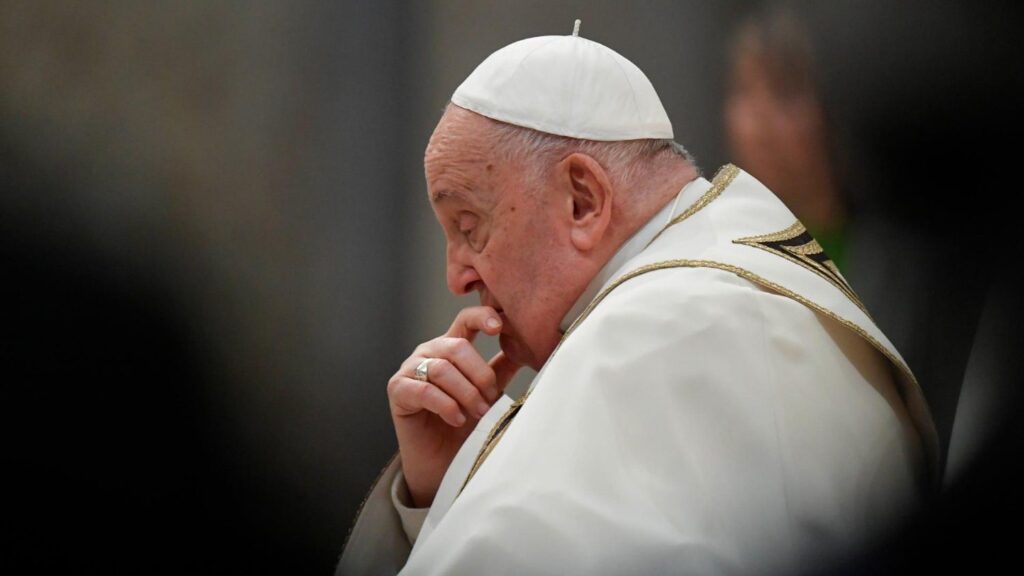The denied identity
A healthier society is not one that condemns more and a holier Church is not one that excludes more, but one that loves

The priest and psychotherapist Alfons Gea offer Exaudi readers this article, in which he reflects on “The denied identity”.
***
The Fiducia Supplicans Declaration is raising a stir, as if it were a great reform in the Church. I am neither an expert on the subject, nor do I intend to comment on the document. I find it to be of enormous pastoral exquisiteness, also written simply and clearly.
Fortunately, the church is not a monolithic group, as if it were a sect with its leader. Plurality and discrepancy make possible the freedom of the children of God. And it is already known that each pope arouses sympathies or phobias, depending on the social moment or the ways of thinking of the faithful. I also do not intend to expand on this aspect. Fiducia Supplicans is catalyzing discontent with Francis’ papacy. As soon as we look at where the protests come from, we will see behind them a certain conception of what the Church is. The simple classification of cardinals or bishops who have spoken out on the matter gives us a map of the trends that reign in the Catholic world.
The issue of the “Declaration Fiducia Supplicans” is in the orbit of the sixth commandment, the one that if it did not exist, confessions would plummet. The other nine commandments pass over the conscience of the majority of penitents. Sexuality is indeed a vehicle for the expression of desires, frustrations, joys, philias, phobias, love, self-esteem, social relationships, and more dimensions of the person that go through the management of a livid that is difficult to channel properly.
But the document constantly talks about people affected by a certain situation, who ask for a blessing. It makes it very clear that the union is neither blessed nor is it anything like a sacrament.
A while ago a couple of women came to the parish, one of them came to change her name in the baptismal registration, after having made the gender change civilly. They also asked me if they could enter the church to pray. They felt so displaced that they asked me for permission to pray and light a candle. I accompanied them and we prayed.
Now, when we see each other on the street, we greet each other kindly. At no time did I reinforce his option to change sex, nor his union, rather I continue to appear perplexed, but there is no condemnation at all. Like so many situations in life that we do not understand, we may not approve, but we may accompany it with appreciation. In these cases, the scene of the sinner about to be lynched illuminates me, how Jesus challenges us with the first stone and how before the recommendation to the woman not to sin anymore, there has been a very clear non-condemnation:
‘Woman, where are your accusers? Has no one condemned you?‘ She replied: “No one, Lord.” “Neither do I condemn you,” said Jesus, “(Jn. 8, 1-11).
The Document helps to make explicit on the part of the Church that it does not condemn the person, an aspect that is not always clear. There are many people who feel condemned by the Church, among others to whom the document relates, couples in an irregular situation and same-sex couples. A divorce, for example, is not pleasant at all, to add exclusion from the community. Many people have felt excluded in the church since their marriage breakup.
Throughout my work in grief I have had to accompany parents who have lost their children, in death due to self-harm. There have been many who have felt pressure to live a different sexuality, and often in secret. After death, a double life was discovered, social pressures, among which could be the Church, and too great pain that led to their death. You cannot go back, but you can change what causes condemnation.
Jesus’ non-condemnation of sinful behavior has not always been clear.
There are too many people who live their family or relationship situation irregularly, who in many aspects have not chosen either circumstances or sexual inclinations. These situations can cause pain, from which they need to be released.
The first step is the approach from non-condemnation. The blessing they ask for is an approach from the heart. And Fiducia Supplicans helps.
The protests, due to the way in which they are expressed, with a certain viscerality towards a minor issue and so well nuanced in the Document, which at no time contradicts the doctrine, seem like a reaction of self-affirmation towards the issue of sexuality. As if there was a need to condemn something that one does not accept in oneself.
The Spanish saying “tell me what you brag about, and I will tell you what you suffer from” places us in the Freudian defense mechanisms in which we deny our own reality by condemning the other. It has been shown that the most homophobic, persecutory behaviors towards homosexuality come from homosexuals who do not accept their sexuality (from the University of Rochester and the University of Essex, England, and the University of California in Santa Barbara, in 2012).
The professor at the University of Essex and director of that study, Netta Weinstein, explained the relationship between homophobia and homosexuality in this way: “Individuals who define themselves as heterosexual, but who in psychological tests demonstrate a strong attraction towards the same sex, may feel threatened by gays and lesbians because homosexuals remind them of some personal tendencies they have, but try to avoid.”
Jesus, in the Gospel cited, begins by inviting those present to look at themselves, before condemning – “he who is free from sin…” Why didn’t anyone cast the first stone? Not only because they also felt like sinners, but, vehement with their sin, they were vehement with the woman. Neither did Jesus persecute them to condemn them.
A healthier society is not one that condemns more and a holier Church is not one that excludes more, but one that loves. Love is not compromising with sin, but caressing those who suffer, giving dignity despite sin and a blessing is the most worthy thing we can offer.
Related

Divine Mercy, the Small and the Great
José María Montiu de Nuix
27 April, 2025
5 min

Reversing Social Deterioration: A Task That Begins in Business Management
Alejandro Fontana
25 April, 2025
4 min

The Revolution of Tenderness
María Elizabeth de los Ríos
25 April, 2025
3 min

His Hope Does Not Die!
Mario J. Paredes
24 April, 2025
6 min
 (EN)
(EN)
 (ES)
(ES)
 (IT)
(IT)

